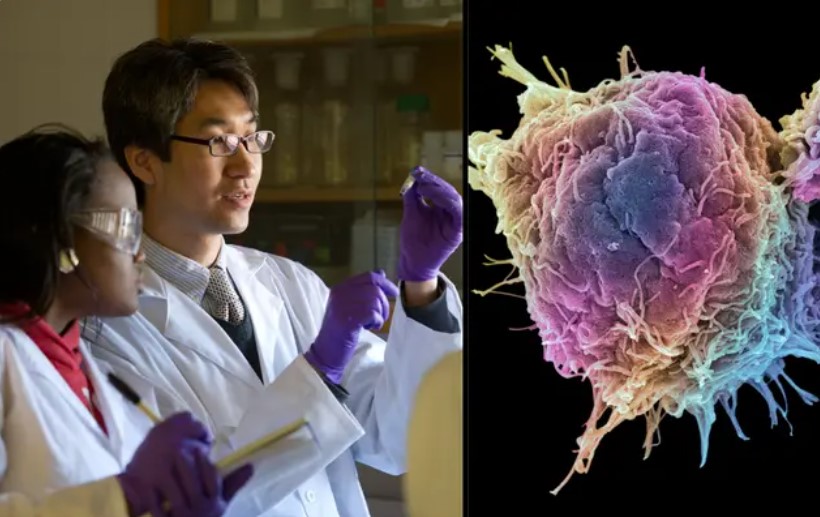
Scientists Develop ‘Nanomachines’ That Can Penetrate And Kill Cancer Cells
- BiotechnologyInternational News
- No Comment
- 411
Researchers have made a scientific breakthrough with the development of ‘nanomachines’ that can kill cancerous cells.
The research team headed by Dr Youngdo Jeong from the Center for Advanced Biomolecular Recognition at the Korea Institute of Science and Technology (KIST) has engineered molecules able to directly penetrate cancerous cells, destroying them, according to Scitechdaily.
These nanomachines can kill cancer cells incredibly fast, attaching themselves to the surface of bacterial cells and drilling into the outer membrane within a couple of minutes.
As the molecules burrow their way into the cell, they repeatedly unfold and fold while inside, creating holes and killing cancer without using harmful medicines or drugs.
Dr Jeong said these mini drills could be the new ‘alternative to overcome the side effects of existing chemotherapy’.
She said: “The developed nanomachine was inspired by proteins that perform biological functions by changing their shape based on their environment.
“We propose a novel method of directly penetrating cancer cells to kill them via the mechanical movements of molecules attached to nanomachines without drugs.”
In a scientific paper published in Science Translational Medicine, Moffitt Cancer Centre researchers have discovered a mechanism that makes prostate cancer resistant through ‘molecular modification of the androgen receptor protein’ and have identified a potential treatment approach that could overcome such resistance.
Androgen deprivation therapy is the primary treatment for prostate cancer, as they reduce hormones called androgen that stimulate cancer, according to Technology Networks.
Although this kind of therapy boosts survival rates, it usually leads to another disease called ‘castration-resistant prostate cancer’, despite the decrease in hormones.
Scientists have discovered this disease is caused by the re-activation of androgen receptors activated through different mechanisms.
However, the team of researchers have developed new drugs, including enzalutamide and abiraterone, which could lead to treatment for the recurrent disease.
Co-author and senior member of the Drug Discovery Department Nicholas Lawrence said of the discovery: “These combined observations suggest the importance of these androgen receptor modification events and protein interactions to the development of castration-resistant prostate cancer.”


